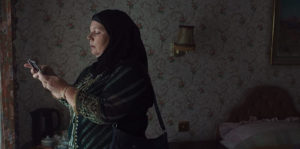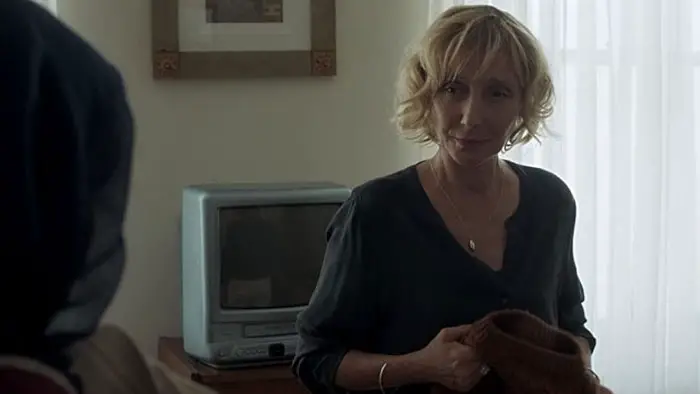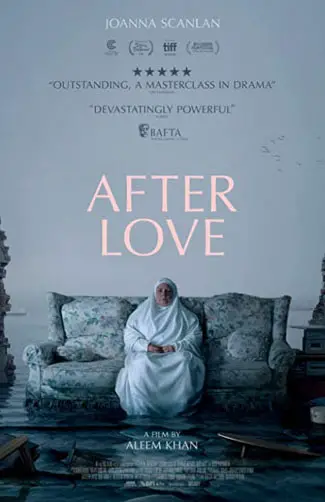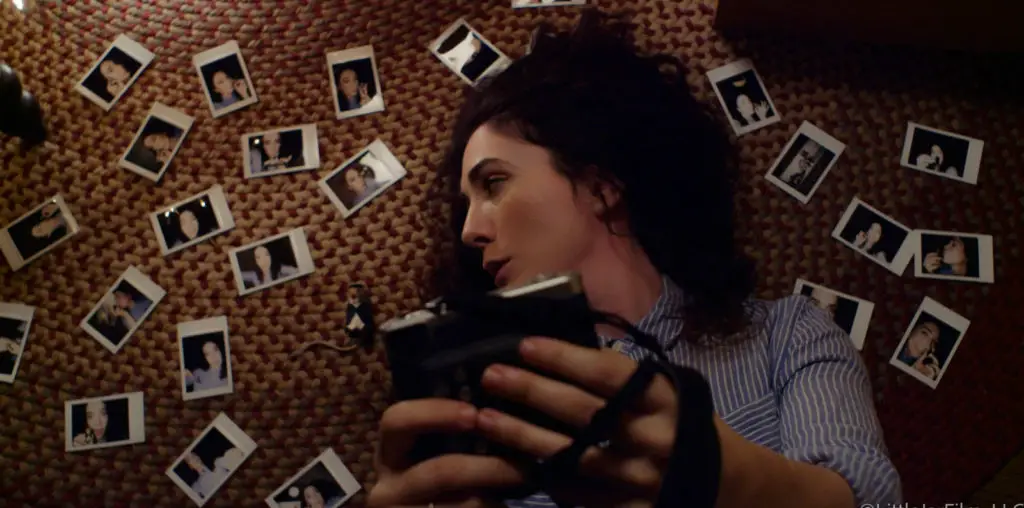
Married people like to think that they know their spouses. They spend more time with them than any other person, so how could they live an entirely separate life without their significant other’s knowledge? Sure, there may be some small things that are kept from our partners, but what if it’s something so huge that it completely reorients what we once thought of them? These are the questions at the heart of writer/director Aleem Khan’s After Love, a slow-burning and meditative query into the deeply buried secrets of those we love.
British couple Mary (Joanna Scanlan) and Ahmed (Nasser Memarzia) are spending what looks to be an uneventful night at home after a social outing. In a matter of seconds, though, Ahmed dies suddenly when sitting down in his chair while Mary is making tea. This jarring development sends her life into a tailspin, amplified by the discovery of an identification card belonging to a French woman in her husband’s personal effects. Why would Ahmed have a woman’s ID in his wallet? Mary’s questions are soon answered as she goes through texts on his phone, whereupon she finds conversations with the woman in question.

“…Mary uses the mistake as a means to insert herself into the lives of Geneviève and Solomon…”
It turns out that Ahmed had a long-standing affair with a woman in France named Geneviève (Nathalie Richard). His job sent him on the road frequently, seemingly giving him ample opportunity to mask his affair from view. Seeking answers, Mary travels to France to confront her, only to be mistaken by Geneviève as her new cleaner. Unable to find the right words, Mary uses the mistake as a means to insert herself into the lives of Geneviève and Solomon (Talid Ariss), the adolescent son of Ahmed. It’s undoubtedly invasive, but how does Mary even begin to broach the subject of her dead husband and his life with Genviève?
The strength of After Love lies in its lack of unnecessary exposition. Khan lets the subtle and restrained performance of Scanlan do most of the talking, avoiding the histrionics that most filmmakers would attach to a film in this vein. Nor does he dwell upon the obvious racial dynamic at play between Ahmed, a Pakistani, and his English wife. Mary readily adopted her betrothed’s culture and converted to Islam but never is this dynamic treated with anything other than refreshing matter-of-factness. Any forced emphasis on the novelty of Mary being a white Muslim would have served to distract from the crux of the narrative. So, the director wisely eschews it from view.
While it’s hard not to appreciate how Khan approaches the plot, I couldn’t help but find After Love to be in need of a jolt of vibrancy at times. Scanlan and Richard are excellent, but the staid rhythm of the story can make it a slog for those wanting a bit more dynamism. For many, this will be too understated. It’s a mature story, and with maturity comes a subtlety that goes beyond exposition. But filmmakers must balance tones effectively, and Khan is unable to shake his film’s monotone nature.

"…Scanlan and Richard are excellent..."


